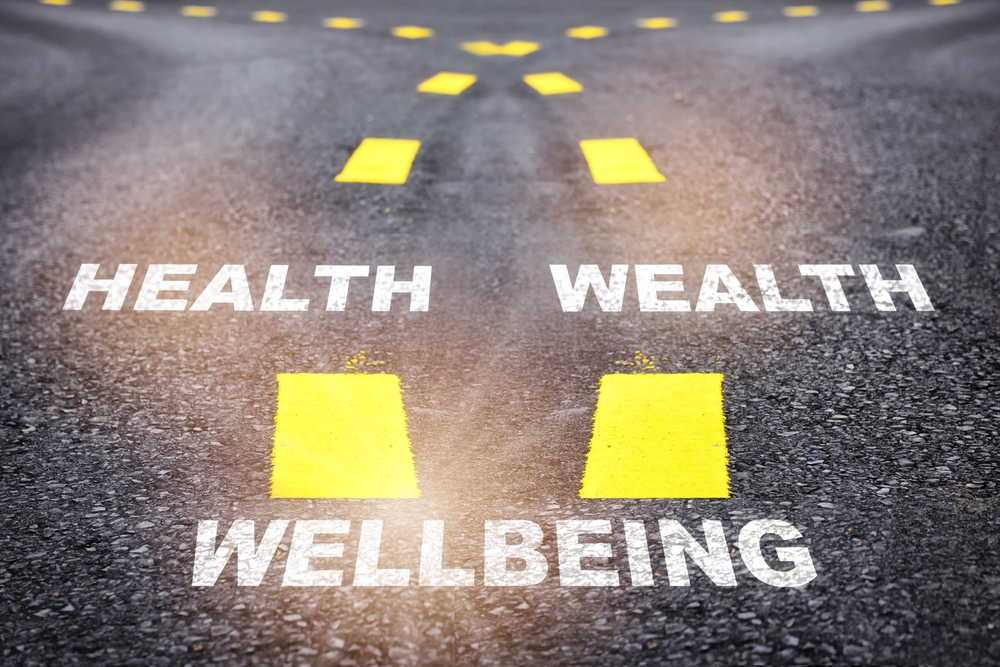Most of us take practical steps to maintain good health.
We promise to eat less sugar and fewer refined carbs, and more leafy greens and antioxidant-filled fruits.
We resist binge-watching that new Netflix series to spend time outside or in the gym.
We try to stop smoking, use alcohol in moderation (or not at all) and put on sunscreen before we head to the beach.
But if you truly want to protect your health, there’s something else you need to do: Turn down the risk in your portfolio.
According to a study in the Journal of the American Medical Association (JAMA), losing a significant percentage of your wealth isn’t just an unfortunate development. It’s as bad for your life expectancy as being broke.
Social scientists have recognized for years that rich people in this country live longer than poor people.
In fact, a study co-authored by two MIT researchers found that the richest 1% of men live 14.6 years longer than the poorest 1% of men. (Among women, the difference is 10.1 years on average.)
There are several reasons for this.
Poor people live in more dangerous neighborhoods. They are less likely to get preventive medical care. And their diets are far less healthy.
Indeed, people on government-subsidized food programs – 56% of the population – have the worst health, including higher risk for obesity, diabetes, inflammation and high cholesterol. (The No. 1 item purchased by food stamp recipients is soda.)
Yet taking a serious hit to your investment portfolio can negate all the advantages of a richer, healthier lifestyle.
According to JAMA, you’re 50% more likely to die within 20 years of losing most of your assets.
That’s about as large a mortality effect as a diagnosis of heart disease. And it holds true even when existing health problems are factored in.
It didn’t even matter whether people were affluent before and after the downturn. It was simply that they experienced a significant loss. (And the grief that comes with it.)
Moreover, the study found that a full quarter of Americans 51 and older experienced what they called a “negative wealth shock.”
If that number seems high, think back to the Great Recession.
It came on the heels of everyday folks flipping pre-construction condos, buying subprime mortgage securities and trading stocks on margin.
We all know individuals who lost a significant chunk of their retirement savings or even filed personal bankruptcy.
You don’t want to become one of those statistics. And you don’t have to. There is plenty you can do about it today.
While full-on euphoria is not here yet, in my view, too many folks are trading options, futures and crypto. They are buying stocks with flimsy fundamentals. They are thinking solely about upside potential and not at all about downside risk.
Fortunately, there is a simple cure for this. It’s called a “portfolio pre-mortem.”
A pre-mortem is a strategy where you imagine that a devastating bear market has just hit and you work backward to determine what you could have done to minimize the damage.
If you’re in retirement or close to it, take a few minutes to visualize this scenario and let it sink in.
Recognize that what’s at risk is real money that was probably attained over a period of many years and at great sacrifice.
Think about just how you’d feel. Then take these six critical steps:
- Adjust your asset allocation so that you have a good balance between equities and fixed income investments.
- Tweak your portfolio so you have fewer low-quality stocks and more high-quality ones. (High-quality stocks have earnings and pay dividends.)
- Emphasize large cap companies over small cap ones. (History shows that large caps hold up far better in market downturns.)
- Weight value stocks over growth stocks. (Value stocks are less volatile because they trade at lower multiples to sales, earnings and book value.)
- Run a trailing stop behind each of your individual stock positions. This will protect both your principal and your profits.
- Favor high-grade bonds over high-yield bonds. (They don’t call them “junk bonds” for nothing.)
Do this now – today – and then take a deep breath.
After all, you haven’t just safeguarded the nest egg it took you a lifetime to accumulate…
You’ve also protected something more valuable: your health.
